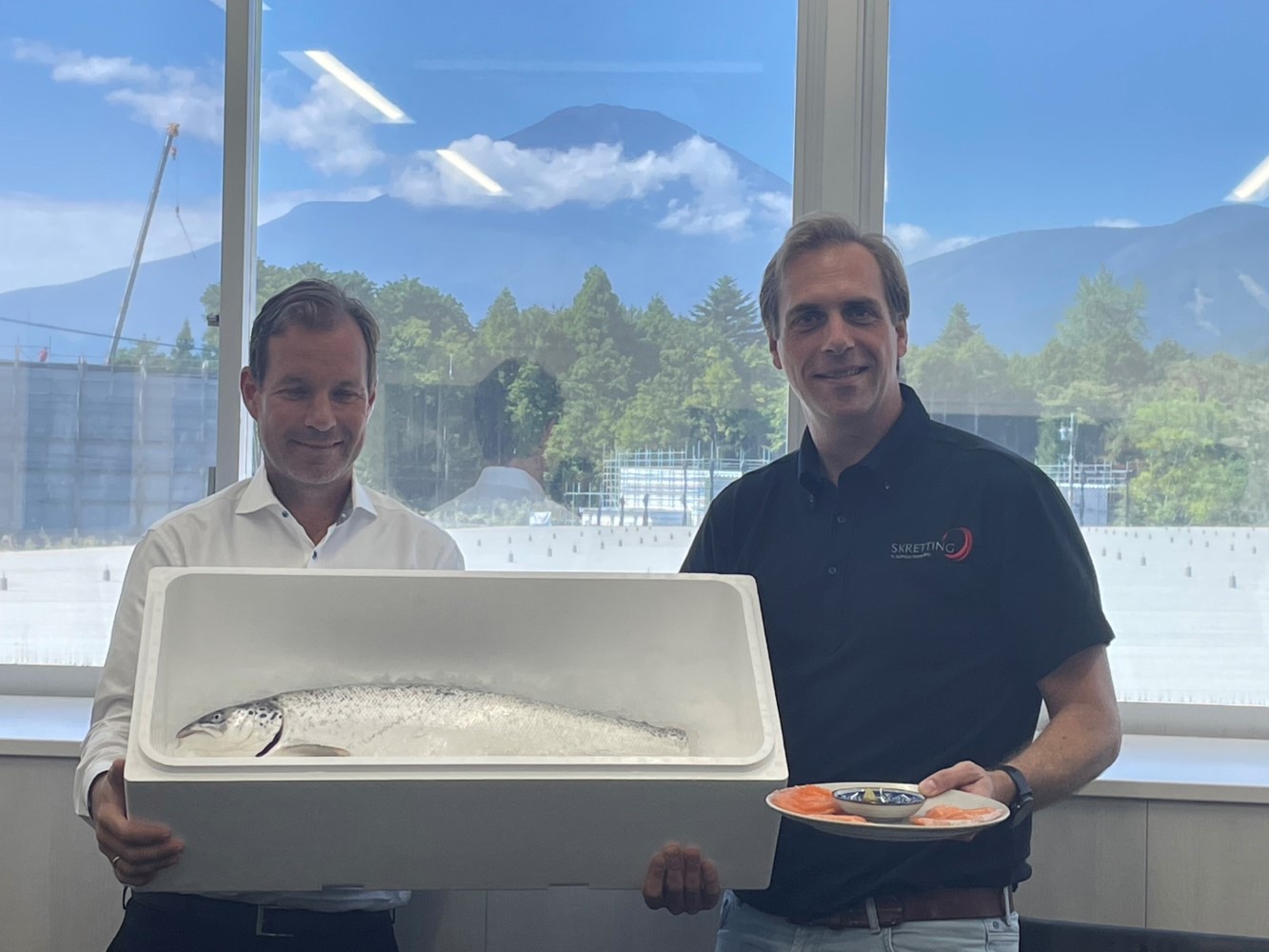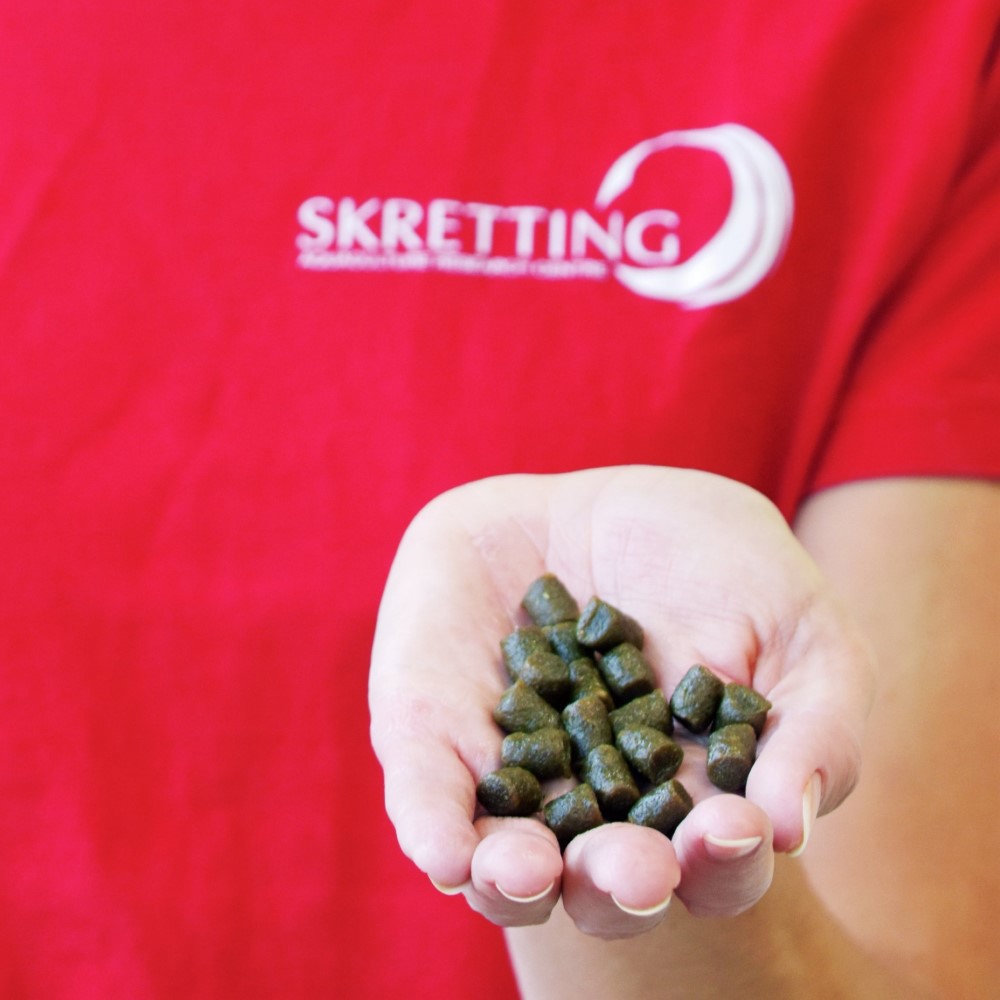On September 30th 2024, Japan witnessed its first-ever domestic harvest of Atlantic salmon, marking a significant milestone in the country's aquaculture industry.
Committed to growth of RAS segment in Japan

This salmon was raised in a recirculation aquaculture system (RAS) facility in Japan's Shizuoka Prefecture, which is built and operated by Norwegian firm Proximar Seafood in 2022.
Skretting holds a strategic partnership with Proximar, and since the start of the project, Skretting's global team has closely collaborated with the RAS team in Skretting Japan, with our fish quality service team also joining forces to provide comprehensive quality monitoring services. This first harvest represents an operational achievement for both Skretting and Proximar.
During a recent visit to Japan, Skretting CEO Bastiaan van Tilburg told Japanese media that growth can be expected in the RAS sector, and there are plans to invest between 10 and 15 million euros in Skretting Japan's Imari plant, in order to strengthen the supply system for RAS feed and improve quality. The investment will also cover feed produced in Japan for the yellowtail market, which is another focus area for Skretting.


Bastiaan also shared that Skretting Japan is working towards obtaining ASC feed standard certification, which will help position Japanese farmed fish for export. Japan is a key market for Skretting, and the company is focused on providing sustainable aquafeed to address challenges like rising raw material costs and climate change, and improve the profitability of Japan's aquaculture industry.
"We are currently contributing 26 million meals of seafood a day, and it is essential that we have a protein supply system in place that can also cope with 2050, when the world's population is expected to reach 10 billion," he said.
